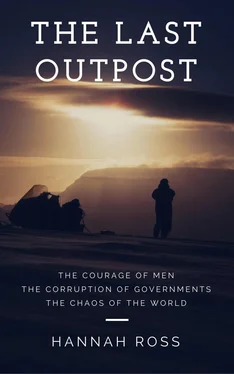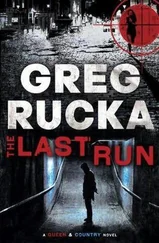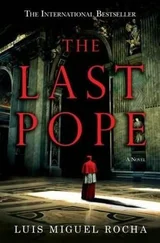“Not at all. I was glad to help.”
“They are fast workers. If you come in a moon’s turn, the house will be done.”
“I hope I’ll come before that. I want to see how they make the roof.”
“Then you will have to work again,” she said with a smile, and Scott knew that she was glad.
As he climbed up the trail, he had no choice but to face the subtle change that had taken place within him. The truth was, McMurdo didn’t feel like home yet, but Tahan’s stone hut did. And if nothing barred him from doing so, he would have gladly stayed at the Anai valley.
Days and weeks continued to slide by, with the McMurdo station becoming more and more isolated from news of the outside world. The phone lines were silent, the internet signal patchy, and Zoe, along with the rest of the communications center team, was pretty sure some of the satellites on which the station relied were malfunctioning. From scarce news reports they knew that, indeed, North Korea had made satellites its primary target, to further destabilize the United States. There had been multiple bombings, from New York to California. Most of the McMurdo residents tried hard to stop thinking about what might be happening back home.
Scott woke up at 6:30 A.M. and headed straight to the shower. With brisk efficiency, he sloshed water over himself, soaped up, and quickly rinsed off, just as the timer began to beep at the end of two minutes. Two-minute showers were an austerity measure he was finally forced to implement all over McMurdo, which was accepted with surprisingly little mutiny. The water pressure was purposefully weakened, too, in a further attempt to save clean water and, most importantly, the energy required to purify it.
He went down to breakfast at the galley, where the cooks were putting up a very good show, considering the circumstances. Though the variety of dishes was somewhat diminished, people walked away with full trays, and continued to chat over their plates as they tucked into eggs and sausages. Real milk was beginning to run low, however, so tiny table racks with coffee creamers were offered instead.
Scott loaded a tray with toast, eggs, and little square containers of butter and jam, and went on to join Zoe, who was picking unenthusiastically through a tofu sausage.
“Morning,” he said, spearing a bit of egg on his fork. “Vegan fare not very diverse lately, huh?” he said sympathetically, looking at her plate.
She shrugged. “It’s fine. Jerry’s vegetables are about the tastiest thing I can hope to get these days.” She crunched a bit of lettuce, the green crispness of which stood in pleasant contrast to the rest of her plate. “Did you know I had to wash my hair in a pail? Two minutes of running water just don’t cut it for us girls, Buck.”
“Sorry,” he said, taking a gulp of coffee. “The water purification center was groaning under the strain, with so little energy to power the station. I never thought we’d have to count on the wind turbines so much, but thank goodness we have them.”
With the world crisis and the isolation, McMurdo now functioned more like a settlement, the primary object of which was to keep itself running, and less like a research station. Research programs ground to a halt, with scientists unable to communicate with their supervisors and receive feedback from the programs that were supposed to fund them. Petri Karhu, the Finnish marine biologist, discovered a new talent as a repairman, and helped to seal a few drafty openings in the roof of building 155. Scott noticed him a few tables away, shoveling down hash potatoes and sausages.
“You slept alright?” Scott asked, watching Zoe carefully and noticing dark circles under her eyes.
“Passably. I think I need more of Jerry’s tea. I helped him fertilize the tomatoes yesterday, and it did me good to get away from the communications center for a bit. It’s more like a non-communications center these days,” she shook her head ruefully. “People keep approaching me and demanding that their emails go through, as if it’s in my power,” she rolled her eyes.
“That’s irrational, but we must have patience. People are worried about their families.” Scott attempted to email his family almost daily. Most of his emails bounced back, and those that went through remained unanswered.
Jerry came over to join them, a stack of pancakes towering on his plate. “Morning, everyone. Isn’t the sun bright and lovely today?”
Zoe rolled her eyes. Jerry has been making this quip daily since the last sunset. “Have a cup of coffee, Jerry. It seems you aren’t really awake yet.”
“On the contrary,” he said, his mouth full of pancake. “I’ve been up since 5, and went to the gym to kill time until breakfast. By the way, Zoe, I think you can have these pancakes. They make them vegan now, saving on eggs. It’s a pity the regulations don’t allow us to keep a few hens here. Foreign organisms and all that, you know.”
“Hey,” Zoe said in a low voice, elbowing Scott in the ribs, “look over there. It’s Nash.”
Scott looked. He had had remarkably little contact with Nash lately, and the little that could not be avoided was carried on in a stiff, official manner, mainly through notes and messages passed through the local network. Now he was surprised to see that Nash, usually taciturn and solitary, was huddled together with a group of people, and talking rapidly in a low voice.
“I wonder what he’s up to,” Scott said. He had a feeling this couldn’t be anything good.
His premonition proved to be right. Contrary to his habit of the last weeks, around midmorning Nash knocked on his office door. “Can I come in?” he asked, stepping in at the same time. Scott glanced up from his laptop.
“I suppose, since you are already in. What is the matter?”
Nash sat in the chair in front of him, and the corner of his mouth twitched. “Oh, nothing,” he said. “Nothing at all, except a global war, a total chaos all over the world, and our complete isolation.”
“Get to the point, Nash.”
“I don’t know how carefully you’ve been reading the supply accounts,” Nash said, “but it isn’t very likely we’re going to pull through the winter without starving.”
Scott raised an eyebrow. “Well, it so happens that, despite your advice, I ordered nearly twice the usual amount of supplies, and nearly all of them arrived before the communications closed.”
“Yes, but in case you haven’t noticed, we have three times more people than we expected to stay through the winter. The food is already substandard — the cooks are stingy with fresh meat, there’s hardly any milk left, eggs are rationed, and that pathetic little greenhouse is not enough to supply the vegetables. Soon, people will begin to grumble.”
“Of course, if someone is constantly busy harping on about how lousy the food is,” Scott said drily. “So what? So we won’t have gourmet fare throughout the winter. We’ll tighten our belts a little until the spring, and have a little more canned meat and beans than we might like. It won’t kill anybody.”
“I don’t know why you’re so sure that the communications and supply lines will be renewed come spring. We don’t know what is going on out there. For all we know, the next sunrise will find us stranded on the edge of a ruined world, with no means of getting out of Antarctica, or shipping supplies here.”
“So what are you driving at? Don’t get going about hunting or fishing again — there’s no justification to do that, and I won’t hear about it until it’s a matter of life and death, Nash.”
“Trying to fish or hunt in this infernal darkness won’t do us much good. But I know, and you know, too,” Nash lowered his voice, “where we can get stores of fresh, abundant supplies. The Anai put up a lot for winter storage. They can share.”
Читать дальше












